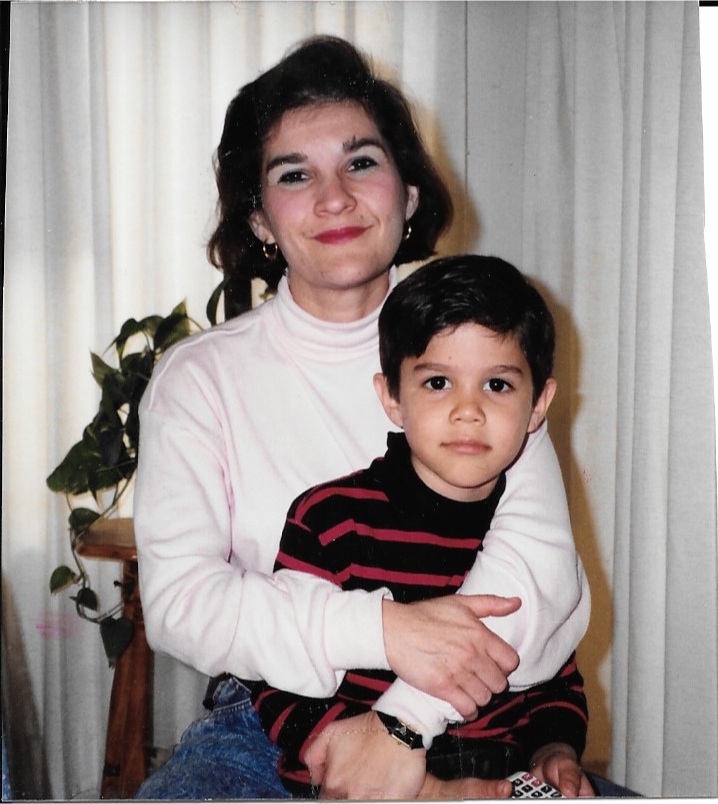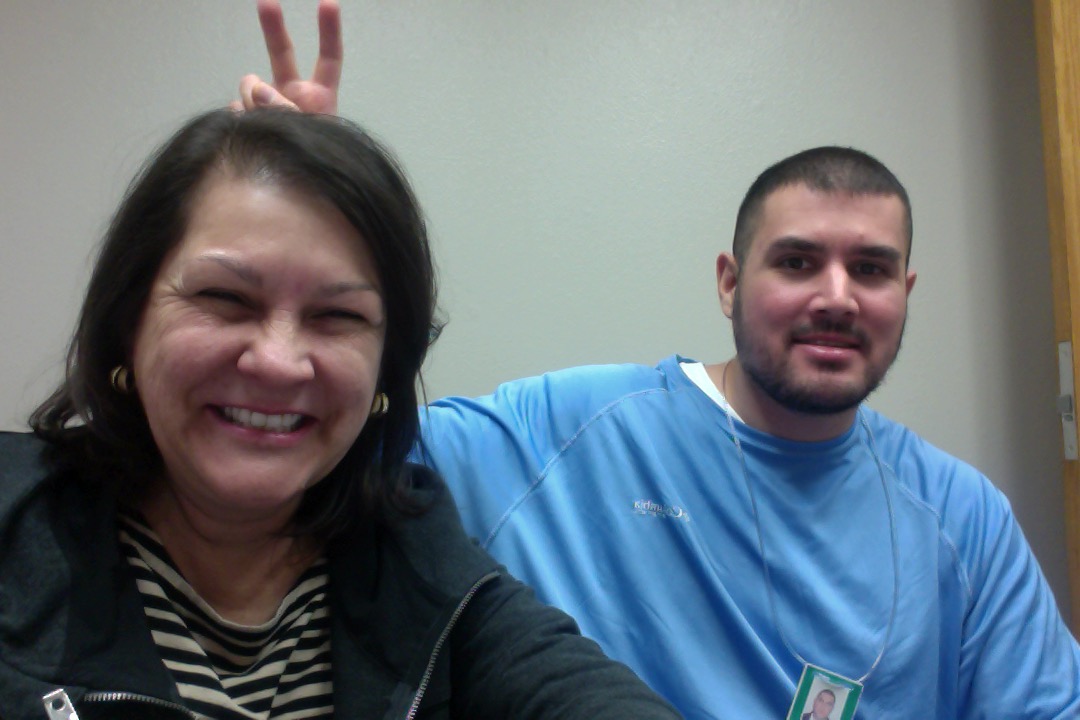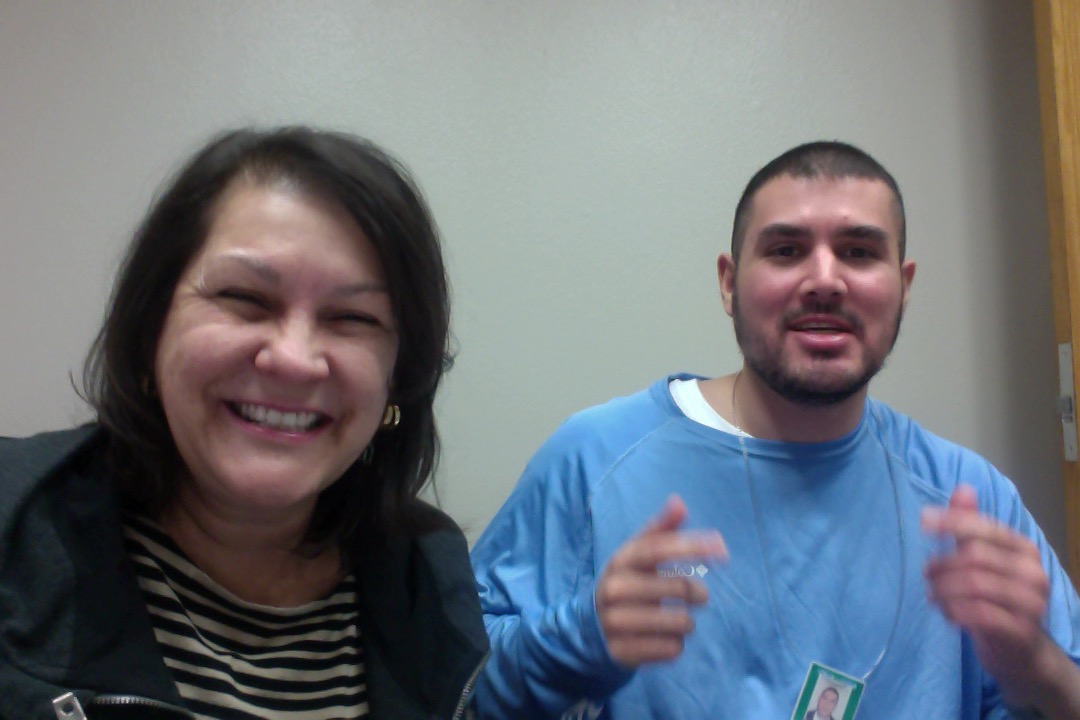JAILHOUSE STORIES
Voices of Pretrial Detention in Texas
Adan
Comal County, New Braunfels, Texas
This story is told by Maria Anna Esparza about her son Adan, a 25-year-old Marine veteran, who was incarcerated on May 27, 2011. Maria Anna struggled to get him treatment for severe mental illnesses and obtain his release from Comal County Jail where he was held mostly in separation or solitary cells. He was held nearly four years.
Maria Ana's story is told in two parts: her first experience, after Adan was in jail for 90 days, and her reflections after he was released and entered a mental hospital.
Part 1: 2011
I have a 25 year-old mentally ill son, Adan, an Iraqi war veteran with severe PTSD. He has been held in solitary confinement in Comal County since his incarceration, May 27, 2011. That's over 90 days of solitary confinement.
The only times he has been allowed out of his cell has been when I have gone to see him, twice a week, for 20 minutes at a time. I only started doing that in August.
My friend Evelyn has told me that this goes against the rules of incarceration. I would like to know more about these rules, as I feel that they are not being followed in my son's case.
He was not given a court appointed attorney immediately after his incarceration. In fact, for the first two weeks that he was in jail, I called about court appointed representation and was told that he had "declined" representation. (When I was finally able to see him, he said that when he was given the paperwork to sign, there was a box that was pre-checked for declining representation. He signed under duress.)
When I asked about a psychiatric evaluation, I was told that this was only recommended under what I finally decided was obscure circumstances. The jail nurse told me that only the D.A's office could order a psychiatric evaluation.
When I called the D.A.'s office, I was told that the psychiatrist or nurse had to make this call and that they would inform them that it was their call to make. The nurse said that those evaluations were only recommended when an inmate was having "trouble" and Adan was being “cooperative and quiet,” so they did not see a need for a referral. Adan would not speak for the first two weeks of his confinement due to his mental condition.
What I was not told was that Adan had been taken to a cell by 4 or 5 guards and while handcuffed, was kneed in the testicles and thrown down to the floor in an effort to "make him talk". I asked him for the name of this guard. He said the guards do not wear name badges. I confirmed that this morning in my visit. I tried to view the badge of the person taking visitation registration but saw no badge anywhere on her person. Evelyn confirmed that the guards do not wear badges.
He has been in solitary confinement since the day he was arrested because they said "he gave them a little trouble" at the beginning.
Adan has diagnoses of PTSD, paranoid schizophrenia and major depression. He is not receiving medical treatment for these conditions at this time. He was getting a three-minute visit by a psychiatrist for the first two months, but this stopped in August/September. He requested medication but this did not happen, he says. He has been told that he needs to have money in the commissary in order to see a doctor or to get medication. My son has VA insurance, BCBS insurance and Medicare insurance. Yet he is unable to access medical care for his mental illness while incarcerated in Comal County.
Part 2, 2015
Maria Anna believes that neglect of his conditions and the long isolation further damaged Adan’s mental health. Maria Anna herself paid a price: the extra work and worry strained relations with her family and impacted her work. She was holding a full-time job the entire time Adan was held in the county jail, and she found that in order to visit him, she often had to be late to work or be late getting home at night, or both.
I was trying to see him twice a week when he was in Comal County Jail. Being in isolation, they only allowed 2 visitors at a time, and so if I went on time, others might arrive early and take both spots and I’d have to wait an hour to visit and be there an hour later. So I had to come an hour early in order to be first, which meant two hours total, plus the half hour traveling. So it was two and a half hours after or before work, twice a week.
You can’t really know what would have happened if he’d received the help sooner than later but I’ve seen the effects of institutionalization on him. He is having to re-learn so much now. He walks with that shuffling gait characteristic of people who spend a great deal of time indoors, avoiding direct eye contact. All that time [in the jail] he lacked any physical outlet or exercise outside. They didn’t encourage him to go outside and without that encouragement, he felt safer in seclusion and opted to stay in his cell.
He currently diagnosed with “psychosis not otherwise specified.”
Nowadays in the hospital, when his young nieces visit, he tries hard to join in the conversation and kid around, but he is having to relearn that part of life that we all take for granted; the part of life where we joke around with family and build camaraderie….It’s hard for him to recall that sense.
He’s forgotten how to be goofy. At Christmas, he and his sister were making funny faces, and he stuck out his tongue but the funny face did not jive with the look in his eyes. He is aware that he once had that sense of…goofiness, and he wants to get it back. Having the kids around has helped him to bring his defenses down and to help him remember the way he was before.
This experience has been a source of some tension in the family ….hyperfocusing on the one person takes away time from others, but I had to do that, to keep Adan in the loop, keep him connected with the family. I was always asking family ‘would you go visit him?’ But they were uncomfortable, uncertain, they had normal fears around the experience: ‘How am I going to look to others, going to the jail? Who’s going to see me going there?’ These are the elements of shame and humiliation for the family going through this situation.
I met families of other veterans, who walked away, moved out of state, who found the enormity of the problems overwhelming and chose to distance themselves. After a time, I realized that this was the norm among families of veterans. This can drag you into the deepest hole of despair and loneliness. For any family, this experience is a huge test of one’s faith.





